Improving your body image, the healthy way
People tend to focus on “problem areas” when they look into the mirror, filling their minds with negative self-talk as they critically appraise their appearance. If you start to internalize these bad thoughts, you can fall into a vicious cycle of never feeling like you look good enough, dieting, and even disordered eating, say experts. There’s a way to put an end to the shame spiral—just check out advice from our health experts on how to improve your body image without dieting.
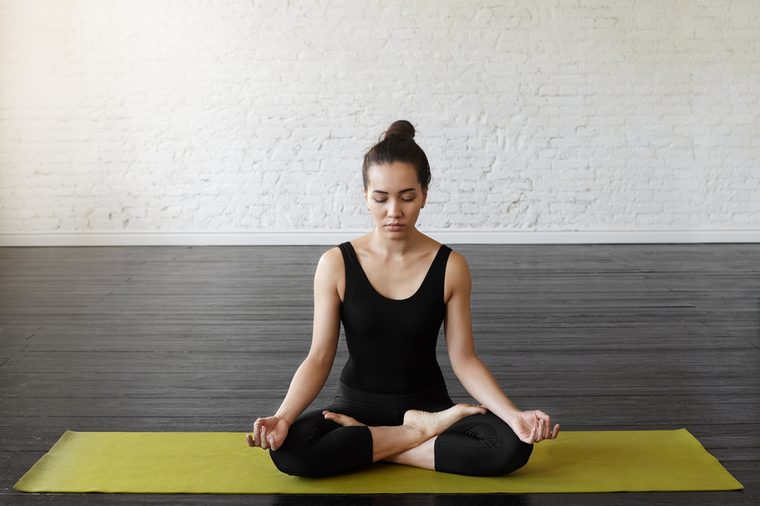
Meditate
When most people want to improve how they feel about their bodies, they often focus on moving more—not taking time out to relax and meditate. But according to a 2015 study published in the journal Mindfulness, finding your inner peace may help chase away feelings of body dissatisfaction. In the study, women who participated in guided self-compassion meditation for about 20 minutes daily for three weeks reported an increased appreciation for their bodies. How? “Meditation requires you to practice being present in the moment, which has a cleansing effect on the subconscious mind, clearing out the body-shaming, self-hating garbage that gets stuck there,” explains Ashlee Davis, a certified fitness trainer and yoga instructor in Atlanta, who helps her clients develop a positive relationship with food and their bodies.
Take action: You can listen to audio files of the exact meditations used in the study at selfcompassion.org. But really, most forms of meditation can be effective, says Davis. Check out local meditation classes or download a meditation app like Inscape, and commit to a daily practice. Also, take a look at these 30 ways to boost your self-confidence instantly.
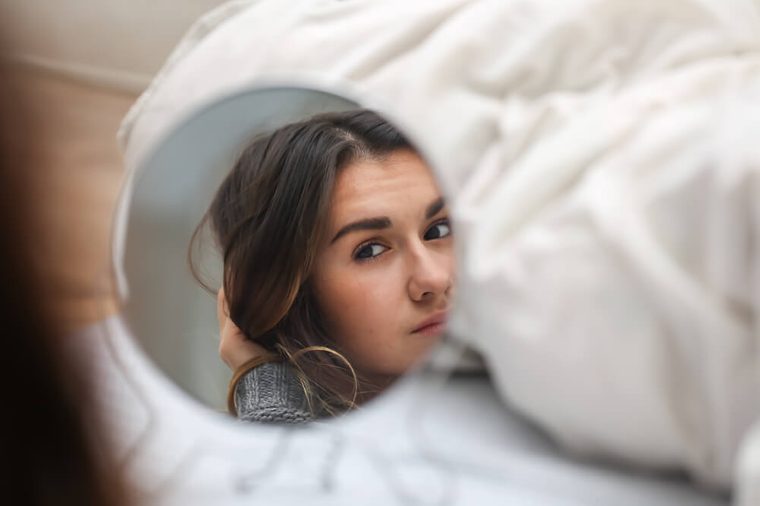
Ditch negative self-talk
“My thighs are so big.” “I wish my arms looked like hers.” “I wish my stomach was flatter.” Living in a day and age where we’re surrounded by images of perfectly Photoshopped people, it’s not uncommon to have thoughts like these. Research, including a 2016 study published in Psychology of Women Quarterly, shows that negative self-talk can have a detrimental impact on your confidence and mood, says Lindsay Henderson, a psychologist who treats patients virtually via telehealth app, LiveHealth Online, in Pittsford, New York.
Take action: “Start paying attention to how you communicate with yourself, and track both the positive and negative examples of it throughout each day. Noticing and observing this self-talk is the first step toward changing it,” says Henderson. Next, start challenging these messages. “Write down things you like about yourself, and keep those positive messages on hand so you can fight back next time negative self-talk rears its ugly head. The seemingly insignificant act of challenging your own internal thoughts has a remarkable impact on one’s emotions.” Here’s how to stop the damage of negative self-talk.
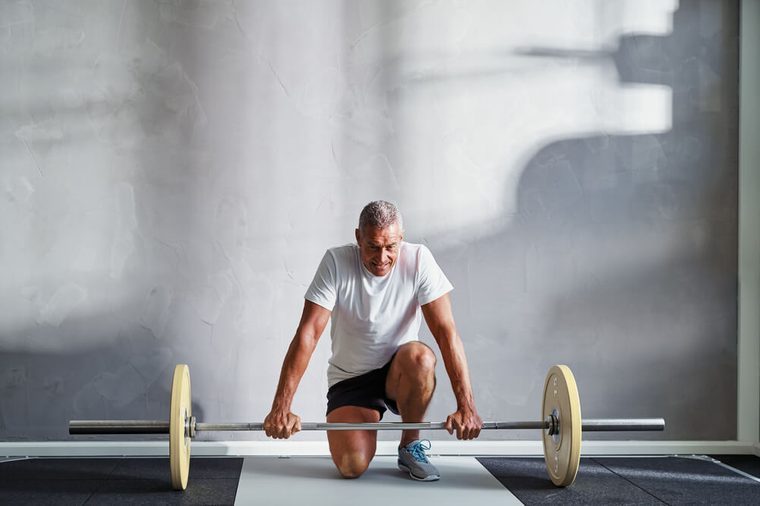
Hit the weights
When it comes to improving body image, strength training trumps aerobic exercise, according to a meta-analysis in the journal Psychological Reports. “Strength workouts have the power to shift your focus from a number on the scale to healthy self-competition, determination, and dedication to your own growth,” says Davis, who was not involved with the study. “With weight training, you have an opportunity to prove to yourself that you are capable of much more than you previously thought,” she adds.
Take action: If you’re looking to explore this type of workout, Davis suggests reaching out to personal trainers at your local gym or joining a club that specializes in weight or functional training, like a CrossFit facility. “Keep an open mind and don’t be afraid to ask questions. We all have to start somewhere. Many people in this section of the fitness world remember that and are happy to help out.” These are body confidence tricks worth stealing.

Shift the dialogue
Women are more likely to report body dissatisfaction when their friends regularly discuss dieting, exercise, and the desire to lose weight, according to a 2013 study in the journal Sex Roles. “We’re all shaped by our environment, including commentary from friends, family, and social media connections,” Davis explains. “Even when these negative thoughts and feelings are self-centric, they have the power to plant seeds in our own minds, and often do, especially if we succumb to temptation and sink to their level,” adds Davis.
Take action: The next time a friend zeros in on their flaws, try giving him or her a compliment and then shifting the focus of the conversation. “Speak up and kindly express your desire to shift the dialogue. If certain friends or family members choose to remain stuck in their ways, consider creating healthy boundaries and an exit strategy when sensitive topics come up in conversation,” Davis suggests. This will not only help lift your friend up but also help give your self-esteem a boost, too.
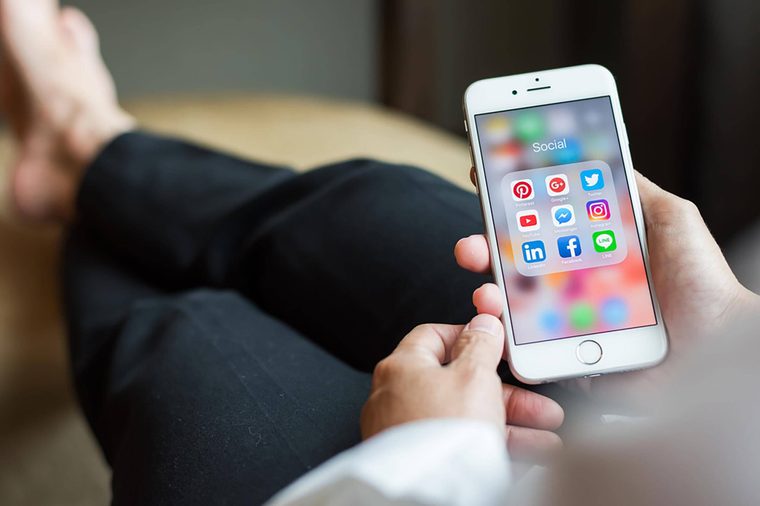
Cut out negative media
We’re spending more time on social media than ever before, with data from Statista finding that the average person logs over two hours a day on their various accounts. While scrolling through Instagram photos might not seem like a big deal, a 2016 study in the journal Body Image suggests that logging a ton of time on social media can be detrimental to women’s body image.
Take action! “It can be helpful to avoid media sources that you find promote or feed into your negative body image and self-esteem,” says Henderson. “This might be different for everyone, so it is important to reflect on how different social media sites, websites, magazines, and TV shows make you feel. Then, cut out the sources that make you feel low.” If the thought of shutting out social media seems overwhelming, Henderson suggests doing a one-week trial and taking note of how you feel before and afterward. “Seeing evidence of improved mood and body image might help to realistically resist the draw of compelling media sources,” Henderson adds.
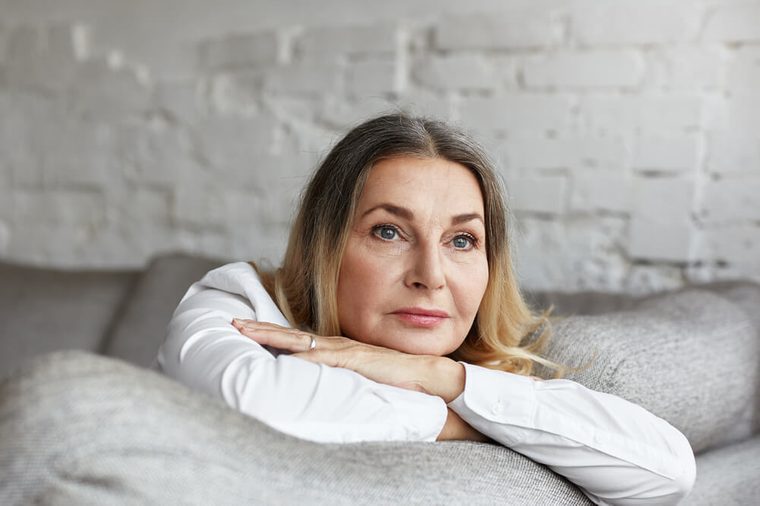
Live a well-rounded life
When you spend a ton of time fixating on things you’d like to change about yourself, there’s not much time left to enjoy life. This can lead to poorer emotional health and a diminished quality of life.
Take action: Focusing on living a balanced life can help give your body image a boost and improve your quality of life, says Andrew Walen, a psychotherapist, certified eating disorder specialist, and founder and CEO of The Body Image Therapy with locations in Washington, D.C, and Columbia, Maryland. “I teach my clients to develop what I call the eight keys to a well-rounded life: Physical health, emotional health, spiritual health, their work or academic success, relationships with family, relationships with friends, personal development of artistic or avocational interests, and indulgence in joy and adventure.” Set aside time to work on these areas of life, and you might just reduce the unhealthy focus on body image, Walen says.

Try journaling
Before becoming a health coach, Davis struggled with her body image and relationship with food. Understanding the root causes of her body dissatisfaction was one of many things that turned her onto a healthier path. “In my experience, gaining a deeper understanding of why I was unsatisfied with my body changed everything. Writing can help to shed light on dark thoughts that aren’t serving us. Once you’re aware of these negative thoughts, you can take steps to shift towards a more positive outlook,” she says.
Take action: Davis suggests writing in a journal at least once a day. “Let it all go on the page and determine what immediate action you should take to shift your mindset. Write it down. You always have the power to rewrite your story,” Davis says. Don’t miss these science-backed tricks to boost your self-confidence.
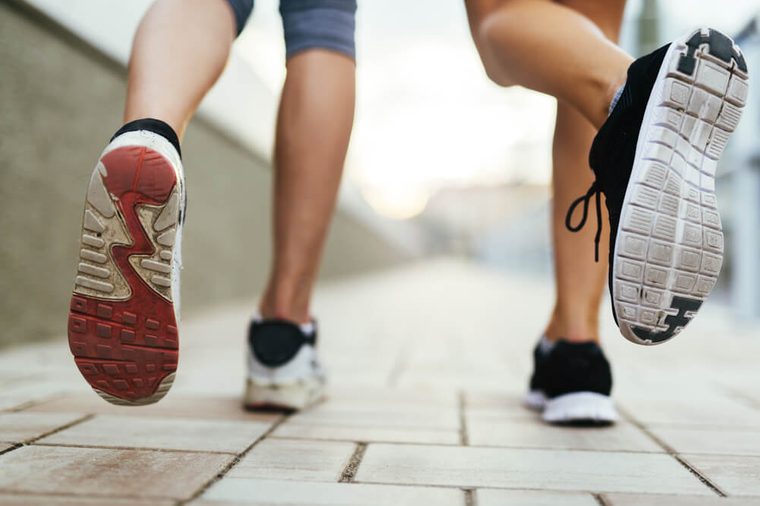
Set performance-oriented goals
When you’re hoping fitness will deliver a desired body type, you’re bound to get frustrated and down on yourself. Losing weight, building muscle, or reaching any physical appearance-based goal for that matter can be tough! Instead of focusing on how fitness makes you look, consider how your workouts can make you feel and what they can help you accomplish. “Setting performance goals that are reasonable and within a person’s physical capabilities provides a sense of accomplishment, which in turn reduces a fixation on body image,” Walen explains.
Take action: If you enjoy running, train for a 5K. If you want to improve your upper body strength, work towards being able to do five pull-ups or 15 push-ups. It doesn’t matter what you strive for, all that matters is you have a performance-based goal, and you’re taking steps to reach it. Your body is far more capable of greatness than you probably realize.
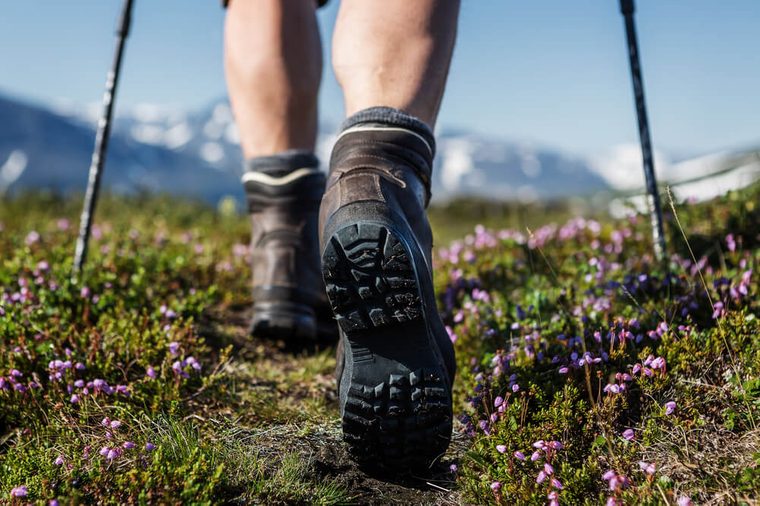
Take a hike
You might already know that spending time in natural environments like parks can help boost your mood. But here’s a lesser known bit of information: It may also help to restrict negative appearance-related thoughts, according to a 2018 study published in the journal Body Image. While the researchers aren’t sure why this is, they hypothesize that time spent in natural environments allows people to distance themselves—both physically and mentally—from situations and communities that are heavily appearance-focused. Spending time in peaceful natural environments may also provide the peace and quiet needed to reflect uninterrupted, see “one’s body as part of a wider ecosystem requiring protection and care,” which can help foster self-kindness.
Take action: Take a nature walk, go cross-country skiing, or check out a national park. Anything you think you might enjoy doing outdoors is worth making time for on a weekly or daily basis.

Identify body parts you love
If you look in the mirror and think things like “I hate my thighs” or “I wish I were ten pounds thinner,” you’re not doing your body any favors. Harsh self-talk is associated with negative psychological and physical health outcomes. Interestingly enough, however, daily body-focused gratitude can have the opposite effect, helping people feel better about their bodies, regardless of their body mass index, or BMI, according to a small 2018 study published in the journal Body Image.
Take action: To reap similar results at home, spend five minutes each day writing down things you like about your body. Maybe you love your legs or are really proud of how strong your arms have become. It doesn’t matter what you write, so long as you’re kind to yourself and consistent with your practice.
Next, here are the 15 best-ever comebacks to body shaming.
